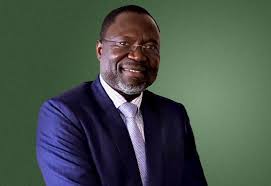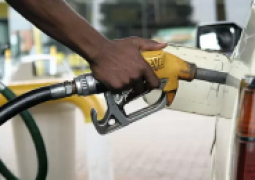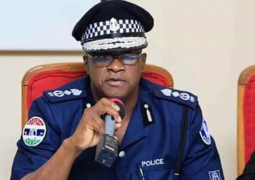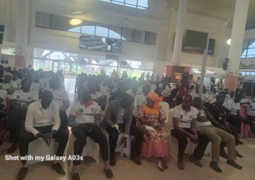
The ECOWAS president was speaking at an event to pay tribute to late Gambian leader and statesman, held at the Sir Dawda Kairaba Jawara Conference Centre on Saturday.
Dr Touray, said that at independence, The Gambia’s population stood at 300,000 and GDP was only £9 million. “The country was totally dependent on rain-fed agriculture, which rendered the economy vulnerable to the vagaries of bad weather, pests and commodity price fluctuation,” he recalled.
He expatiated: “There was hardly any industrial activity; and skilled manpower was inadequate. These difficulties accounted for the scepticism that greeted the country’s independence prospects. The strong doubts prompted the United Nations to commission a report on The Gambia’s independence prospects and possible association that could be envisaged between The Gambia and Senegal.”
Further shedding light on the Gambia-Senegal relationship, he said: “The centrality of Senegal in The Gambia’s security architecture was accounted for largely by Senegal’s position as The Gambia’s immediate external environment.
“In many ways, this explains the impact that students of foreign policy attribute to geographical location. During the Apartheid era, the freedom of choice and type of external relations of countries like Botswana, Lesotho and Swaziland were limited because of their geographical location vis-à-vis White-dominated South Africa and Rhodesia.”
Similarly, he went on: “The aim of Finland during the Cold War to appear as a credible neutral or achieve common political and economic policies with other Scandinavian countries had been limited, partly by historical factors, and partly by Finland's geographical position vis-a-vis the former Soviet Union.”
He also stated that economic viability, on the other hand, was envisaged to depend on the ability of the Gambian Government to mobilise greater international economic assistance.
“This became the defining objective of the Gambia’s relations with countries beyond sub-Saharan Africa. Links with UK and Europe as well as religious affinity with the Middle East bolstered the Government’s efforts in mobilising assistance from these regions,” he said.
“The Gambia failed to have her share of contribution to the United Nations lowered, but was able to get both the Commonwealth and the OAU to reduce the country’s contribution rate. To a large extent, this enabled The Gambia to participate actively in these organisations.”
He further elaborated “Initially, The Gambia's participation in both the Commonwealth and the OAU was directed towards saving the organisations from falling apart over the Southern Africa, particularly Rhodesian, issues, and over the dispute between Ghana and several African states.”
Dr Touray further explained that during the 1980s, The Gambia's policy in West Africa was marked by the growing concern about the political problems that compounded the economic problems of the region. “These problems assumed alarming proportions during the latter-half of the 1980s,” he recounted, saying: “Relations between The Gambia and Senegal left much to be desired following the disintegration of the Senegambian Confederation; Senegal and Mauritania expelled each other's citizens and broke off relations; the Tuareg rebels were active in both Mali and Niger; political unrest and student demonstrations became commonplace in Ivory Coast; civil, religious, and student uprisings were shaking the very foundation of Babangida's military regime in Nigeria. But it was the Liberian civil war, which broke out in 1989, that posed the greatest threat to peace and security of the region.”
He continued: “The presentation covers foreign policy events, episodes and processes that have brought out several qualities of President Jawara. These qualities enabled him to use The Gambia’s foreign policy to promote security and economic development of the country. We have also seen that Jawara did not limit The Gambia’s foreign policy to economic and security questions alone. Foreign policy was used to promote various values and norms such as respect for human rights and democracy and this won Sir Dawda and the Gambia a lot of prestige.”
The ECOWAS Commission’s head further said: “Our findings imply, on a more theoretical level, that all states pursue the same three foreign policy objectives: security (including regime security), socioeconomic development and norms and value entrepreneurship. States differ only in the detail ingredients of their objectives and the manner in which they pursue their goals.”




